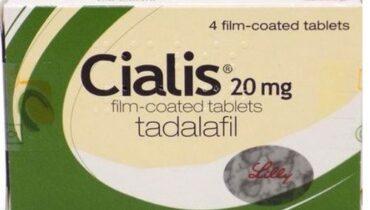Introduction
When it comes to medications, their effects can often extend beyond their primary purpose. One such medication is Cialis, generically known as tadalafil, which is primarily prescribed to treat erectile dysfunction (ED) in men. However, there’s a growing curiosity about its potential impact on blood pressure.
In this article, we’ll dive into the question: “Does Cialis lower blood pressure?” Let’s explore the intricacies and potential implications of this query.
Understanding Cialis and its Mechanism
What is Cialis?
Cialis, a brand name for tadalafil, is a medication primarily designed to enhance blood flow to the penis, aiding in achieving and maintaining an erection. It falls under the class of phosphodiesterase type 5 (PDE5) inhibitors, which play a pivotal role in treating ED.
How does Cialis work?
Cialis works by inhibiting the action of PDE5, which is responsible for the degradation of cyclic guanosine monophosphate (cGMP). cGMP is a molecule that promotes smooth muscle relaxation and vasodilation in blood vessels. By inhibiting PDE5, Cialis helps maintain higher levels of cGMP, allowing improved blood flow to the penis.
You can buy generic Cialis/Tadalafil here.
Exploring the Impact on Blood Pressure
The potential effect on blood vessels
While Cialis primarily targets the blood vessels in the penile region, its mechanism of action also influences blood vessels throughout the body. The vasodilatory effect of increased cGMP levels can lead to relaxation of systemic blood vessels, potentially impacting blood pressure.
Clinical studies and findings
Research on the relationship between Cialis and blood pressure is ongoing. Some studies suggest that Cialis might have a mild hypotensive (blood pressure-lowering) effect due to its vasodilatory properties. However, the decrease in blood pressure is generally modest and not significant enough to be used as a standalone treatment for hypertension.
Addressing Concerns and Considerations
Interaction with other medications
Individuals taking nitrates or alpha-blockers for heart conditions should exercise caution when using Cialis. These medications, when combined, can lead to a significant drop in blood pressure, potentially causing adverse effects.
Dosage and professional guidance
Proper usage of Cialis is crucial. It’s essential to adhere to the prescribed dosage and follow a healthcare professional’s recommendations. Self-medication and misuse can lead to unwanted complications.
Does Cialis Lower Blood Pressure?
While there’s evidence to suggest that Cialis may have a mild blood pressure-lowering effect, it’s not a substitute for dedicated antihypertensive medications. If you’re concerned about your blood pressure, it’s imperative to consult a healthcare provider. Cialis should only be taken under medical supervision and for its intended purpose of treating ED.
FAQs
Can Cialis replace my blood pressure medication?
No, Cialis is not a primary treatment for hypertension. Consult your doctor for proper antihypertensive medications.
Are there any serious side effects of Cialis related to blood pressure?
While rare, a significant drop in blood pressure can occur when Cialis interacts with specific medications. Professional guidance is crucial.
Is it safe to take Cialis if I have high blood pressure?
It’s best to consult your doctor before taking Cialis if you have hypertension or any heart-related conditions.
Can I adjust the dosage of Cialis to lower my blood pressure?
Absolutely not. Dosage adjustments should only be made under medical supervision.






